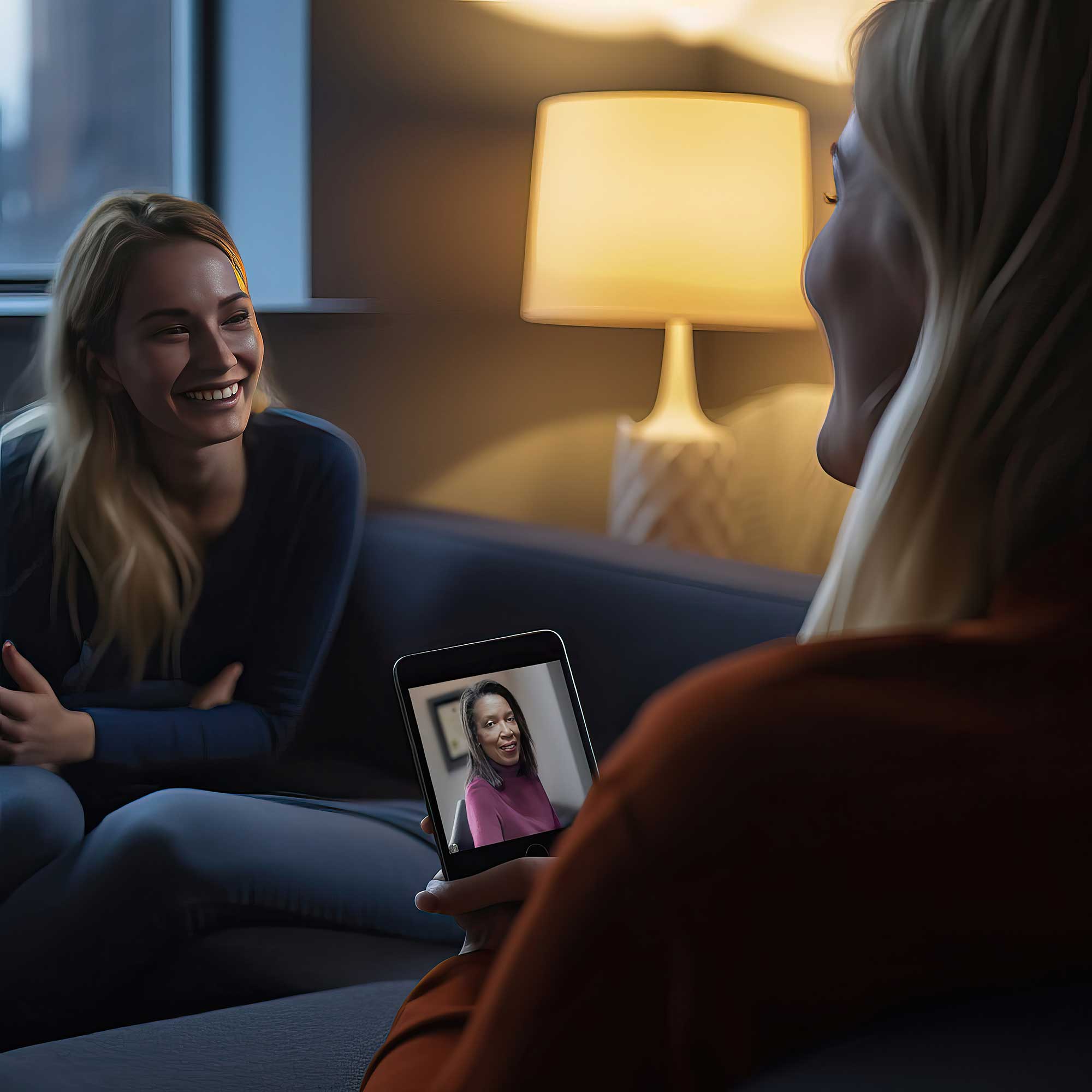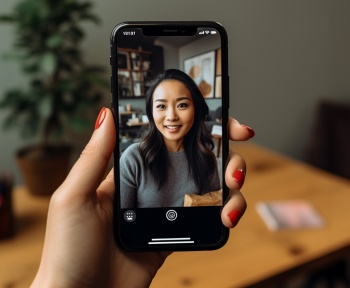The telehealth mental health therapy field has revolutionized since technology advanced over the past decade. With the advancement of teletherapy, people can receive mental health treatment by phone or video conference. Due to its convenience, accessibility, and ability to overcome geographical barriers, Teletherapy is becoming more popular. Despite the possibility of treating mental illnesses via Teletherapy, the effectiveness of the telemedicine treatment has not yet been proven.As discussed in this article, several mental illnesses can be effectively treated with Teletherapy.
Teletherapy as a Telemedicine Treatment Option
Mental disorders are increasingly treated through teletherapy, as it has become increasingly widespread. Post-traumatic stress disorder, anxiety disorders, and depression can all be treated with Teletherapy. One study published in the Journal of Affective Disorders found that Teletherapy was equally effective in reducing symptoms of depression compared to traditional face-to-face telehealth mental health therapy. Teletherapy allows individuals to access mental health services from the comfort and privacy of their homes, eliminating barriers such as transportation issues or the need to take time off work. As a result of this convenience factor, Teletherapy is especially appealing to busy individuals or individuals living in remote areas without access to mental health services.
Telehealth Mental Health Therapy Techniques and Approaches
Teletherapy utilizes various techniques and approaches, similar to in-person therapy. These may include cognitive-behavioral therapy (CBT), psychodynamic therapy, and mindfulness-based therapy. The therapeutic techniques used in Teletherapy aim to help individuals identify and modify negative thoughts, develop coping mechanisms, and better understand their emotions and behaviors. During teletherapy sessions, therapists may also incorporate other forms of communication, such as chat features or email exchanges, to provide ongoing support and guidance to their clients. This flexibility allows for personalized treatment plans based on individual needs and preferences.
Teletherapy in Specialized Mental Health Support
Teletherapy has proven beneficial in providing specialized telemedicine and mental health support to specific populations. For instance, individuals with physical disabilities or chronic illnesses may find attending in-person telehealth mental health therapy sessions regularly challenging. Teletherapy offers them an accessible alternative, ensuring they receive the care they need without the physical barriers. Teletherapy has also effectively reached underserved populations, such as individuals living in rural areas, where mental health services may be limited or inaccessible. This technology-driven approach helps bridge the gap and ensure everyone can access essential mental health support equally.
The Role of Technology in Teletherapy
Technology is crucial in enabling Teletherapy to be a viable telemedicine treatment option. Video conferencing platforms, secure messaging apps, and electronic health records systems are all essential tools that facilitate teletherapy sessions and ensure the privacy and security of client information. These technologies undergo rigorous security measures to protect the confidentiality of teletherapy sessions and meet various legal and ethical guidelines.
Teletherapy in a Post-Pandemic World
Teletherapy has become the primary telemedicine treatment method for mental illness since the COVID-19 pandemic. As lockdowns and social distancing measures were implemented, in-person therapy sessions became more challenging. Compelled telemedicine and mental health professionals and clients alike to turn to Teletherapy as a safe and effective alternative. Despite the initial hurdles, Teletherapy has emerged as a reliable solution to continue ongoing therapy and reach individuals who may require immediate support.
Future Directions and Innovations in Teletherapy
Teletherapy is rapidly evolving, and exciting advancements are on the horizon. As technology continues to progress, Teletherapy may incorporate virtual reality (VR) therapy, augmented reality (AR) tools, and even artificial intelligence (AI) to enhance treatment outcomes. These innovations can personalize therapy sessions, improve engagement, and provide more comprehensive mental tele health therapy care.
(FAQs)
1. Is Teletherapy as effective as in-person telehealth mental health therapy?
The effectiveness of Teletherapy for various mental tele health therapy conditions has been proven through research studies. The convenience and accessibility of Teletherapy make it a viable and often preferred option for many individuals.
2. What are the potential drawbacks of Teletherapy?
Some potential drawbacks of Teletherapy include technical issues, the lack of physical presence or non-verbal cues, and potential challenges in building rapport with the therapist. However, effective communication and technological support often address these drawbacks.
3. How can one ensure the privacy and confidentiality of teletherapy sessions?
Teletherapy platforms and technologies prioritize safeguarding client information and adhere to strict security measures. Choosing a reputable teletherapy platform that complies with legal and ethical guidelines is important to ensure privacy and confidentiality.
4. Can Teletherapy be used for severe mental illnesses?
Teletherapy can be used for various mental illnesses, including severe conditions. It is important, however, to consult a qualified mental tele health therapy professional when deciding whether Teletherapy is appropriate for your specific needs.
5. Are there any age restrictions for Teletherapy?
Teletherapy can be adapted to various age groups, including children, adolescents, adults, and older adults. telemedicine and telemedicine and mental health professionals are skilled in tailoring teletherapy techniques to accommodate the developmental needs of different age groups.
Telehealth mental health therapy provided by Dr. Dee Health Center introduces a significant advancement in addressing mental illnesses – Teletherapy. This innovative approach offers a valuable treatment option, characterized by its convenience, effectiveness, accessibility, and unique ability to cater to underserved populations. As the digital landscape continues to evolve, the role of telehealth therapy is poised to become even more crucial.
In navigating the realm of Teletherapy, seeking guidance from a qualified mental health professional is essential to ascertain its compatibility with individual needs. While the potential of Teletherapy in treating mental illnesses is promising, it’s important to note that its complete efficacy is yet to be definitively proven. The emerging consensus suggests that various mental health conditions can indeed be effectively managed through Teletherapy, a testament to its growing importance in the field.
Dr. Dee Health Center’s telehealth mental health therapy exemplifies the positive impact of integrating technology into mental health support. By offering a platform that transcends geographical barriers, this approach strives to bring therapeutic assistance to a wider spectrum of individuals. As we delve deeper into the digital age, monitoring how Teletherapy evolves and effectively contributes to mental health treatment will be a pivotal area of exploration.





